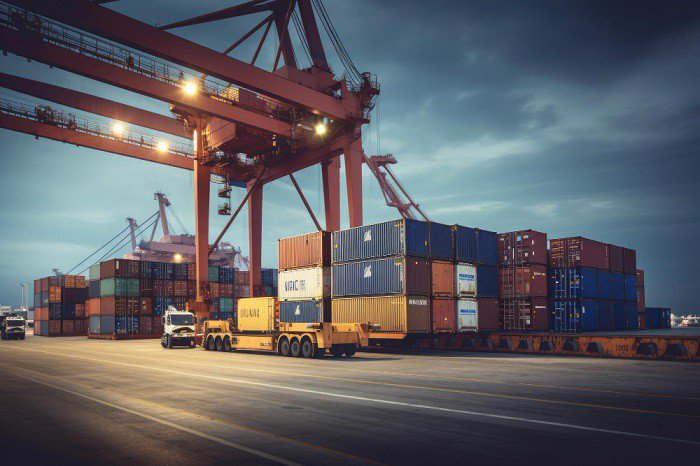
The logistics landscape of India’s export sector is facing turbulent times due to the ongoing Red Sea crisis. This crisis has exacerbated the already high logistics costs, severely affecting the country’s manufacturing sector, export competitiveness, and global positioning. The government must urgently intervene to support the MSME (Micro, Small, and Medium Enterprises) exporters, who are the backbone of India’s export economy.
The Importance of the Red Sea Route
Historically, the Red Sea route has been the lifeline of India’s maritime trade. This shorter and faster route through the Suez Canal into the Mediterranean Sea has been the preferred choice for ships transporting goods from major Indian ports like Mumbai and Jawaharlal Nehru Port Trust (JNPT). It enabled swift and cost-effective access to European markets, which are crucial for Indian exporters.
Impact of the Red Sea Crisis
The deteriorating security situation in the Red Sea has led to significant disruptions. The increased risks have resulted in higher insurance premiums and longer travel times, compelling exporters to seek alternative, longer routes. This shift is not merely inconvenient; it has profound implications for the cost structure and efficiency of India’s export logistics.
Major shipping companies such as Equinor and Maersk have responded by hiking their charges, further straining Indian exporters. The repercussions are especially severe for MSMEs, which operate on thin margins and lack the financial resilience of larger corporations. The nearly 50% surge in air freight charges has compounded the problem, particularly affecting the export of perishable goods like vegetables, flowers, fruits, and eggs to key markets such as the UK and the US.
Economic Ramifications
In the fiscal year 2023-24, Indian exports reached nearly $450 billion, with MSMEs playing a crucial role in this achievement. However, the Indian Research and Information Systems (IRIS) has warned that higher container shipping rates and delayed shipments due to route changes could precipitate a significant decline in exports in the coming year. The disruption of global supply chains has led to increased freight costs, with MSMEs bearing the brunt of this burden.
The impact is not confined to economic metrics alone; it also affects the livelihoods of millions who depend on the MSME sector. As costs rise and profitability declines, MSMEs may be forced to downsize or shut down, leading to job losses and reduced economic activity. This domino effect could stall the momentum of India's economic recovery post-pandemic, making it harder to achieve growth targets.
Government Intervention: A Necessity
Given the global credit crisis and the fragile state of the world economy, the Indian government must take decisive action to mitigate the impact on MSME exporters. Here are key areas where government intervention is critical:
1. Financial Assistance: Providing subsidies or financial assistance to MSMEs to offset the increased logistics costs can help maintain their competitiveness in the global market.
2. Exploring New Markets: Efforts should be intensified to identify and develop new markets in Asia and the Far East, which can be more accessible and less costly to reach compared to traditional European and American markets.
3. Incentive Mechanisms: Implementing incentive mechanisms to control export container pricing could alleviate some of the financial pressure on exporters.
4. Policy Reforms: Long-term policy reforms aimed at improving the security and efficiency of alternative trade routes can ensure the sustainability of India’s export sector.
5. Technological Integration: Investing in advanced logistics and supply chain technologies can help reduce inefficiencies and improve resilience against such disruptions. Real-time tracking and better route management could mitigate delays and unexpected cost surges.
6. Public-Private Partnerships: Encouraging collaborations between the government and private sector can lead to innovative solutions. Joint efforts can focus on building resilient infrastructure and creating risk-sharing mechanisms to protect MSMEs from future crises.
Conclusion
The Red Sea crisis presents a formidable challenge, but with strategic government intervention, the negative impact on MSME exporters can be mitigated. By providing financial support, exploring new markets, implementing incentive mechanisms, and fostering technological integration, the government can help MSMEs weather this storm. Additionally, forming public-private partnerships will be crucial in developing a robust response to the crisis. Such measures are not just essential for sustaining the growth of MSMEs but are also critical for India’s aspiration to become a $5 trillion economy. Immediate action is imperative to protect the seasonal perishable goods sector and ensure the continued vitality of India’s export industry.
The government’s proactive approach will be pivotal in maintaining the momentum of India’s export growth. In times of crisis, swift and comprehensive action can transform challenges into opportunities, ensuring that India’s MSMEs continue to thrive on the global stage.





 Get instant quote
and compare offers in real time
Get instant quote
and compare offers in real time